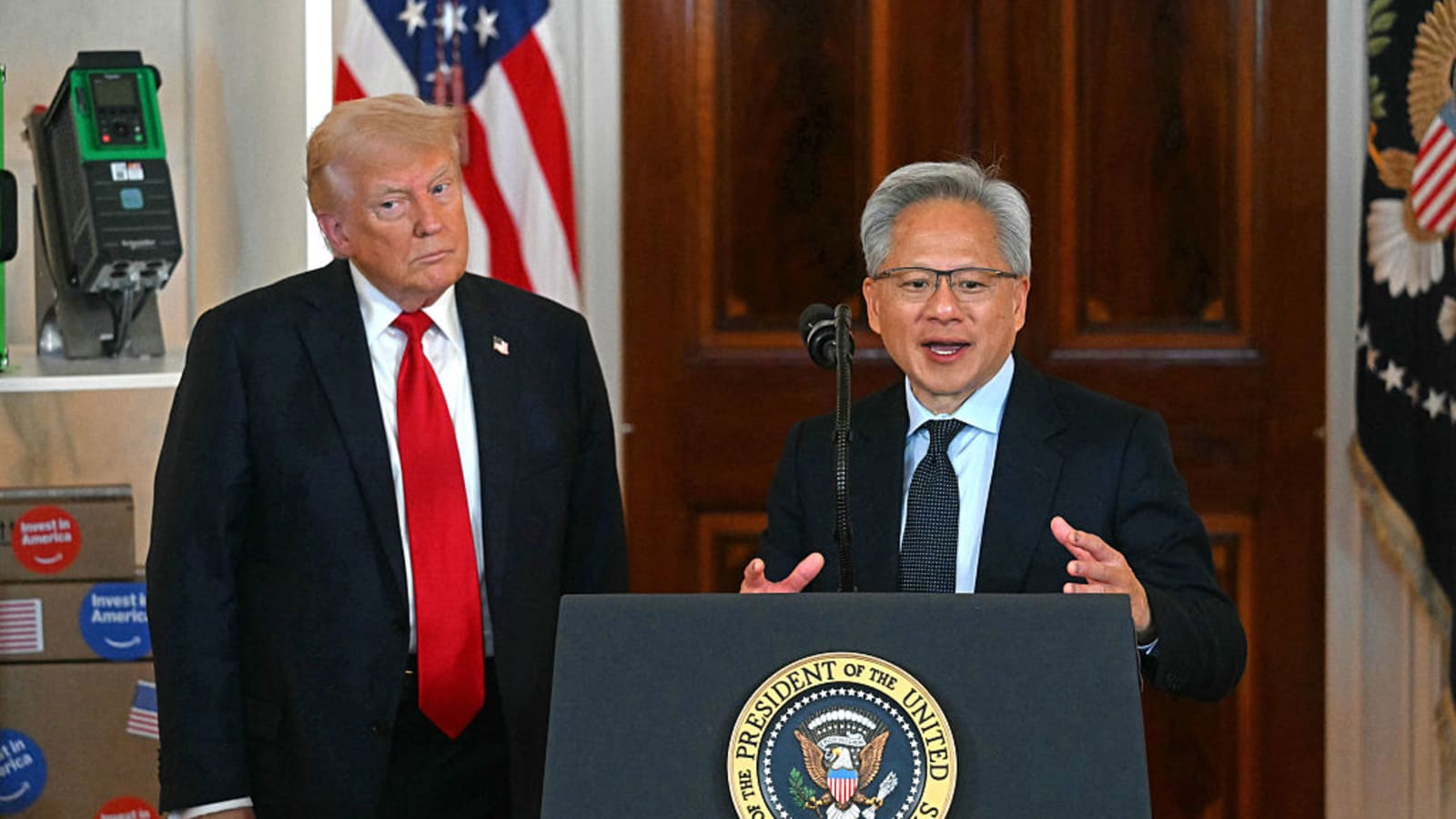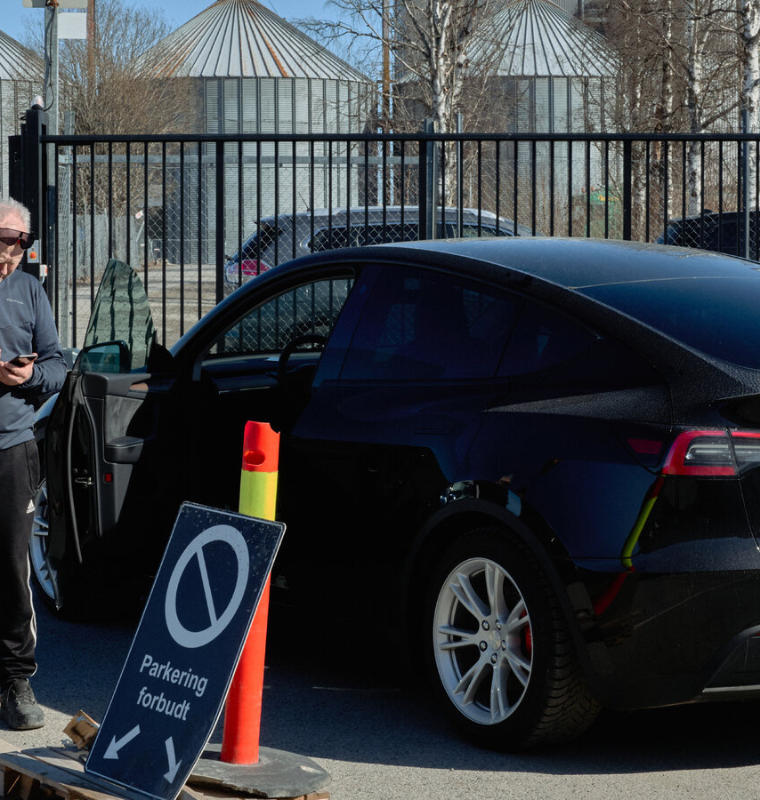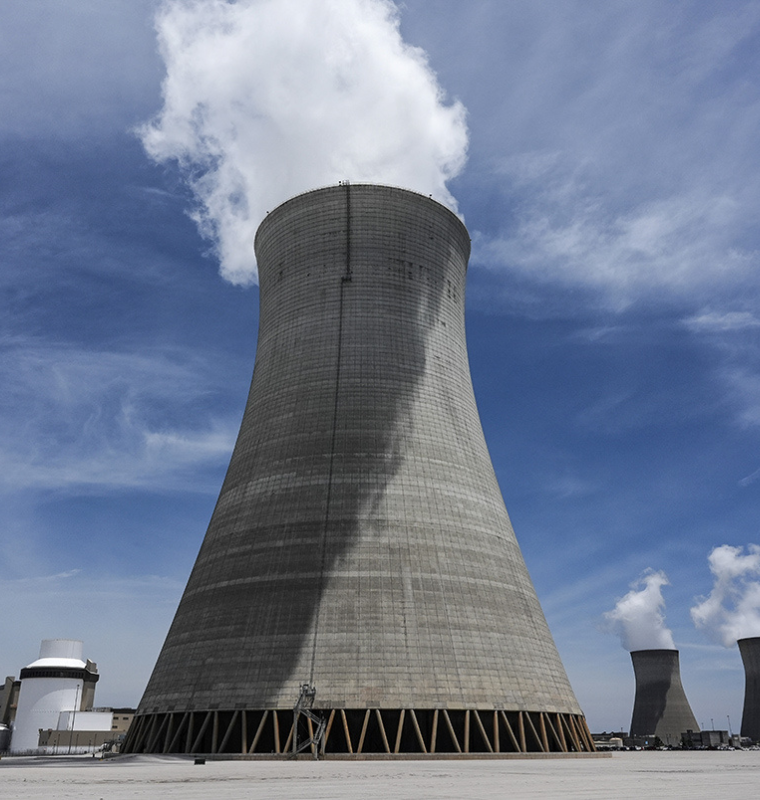Senate Democrats Urge Trump to Reconsider AI Chip Deal with China
Senate Democrats Urge Trump to Reconsider AI Chip Deal with China
By
Leah Rosenfeld
Last updated:
August 18, 2025
First Published:
August 18, 2025

Getty Images
Top Senate Democrats are pressuring President Donald Trump to reverse his decision to permit the sale of advanced artificial intelligence chips to China, warning that the move could compromise U.S. security and strengthen Beijing’s technological and military ambitions.
The Controversial Agreement
On August 11, Trump announced that chipmakers Nvidia and Advanced Micro Devices (AMD) would be granted export licenses to sell certain AI chips to China, provided they give the U.S. government a 15% cut of revenue from those sales. The administration framed the deal as a way to generate government income while keeping oversight on exports.
But many lawmakers see it differently. In an open letter, six Senate Democrats — including Majority Leader Chuck Schumer of New York, Mark Warner of Virginia, Jack Reed of Rhode Island, Jeanne Shaheen of New Hampshire, Christopher Coons of Delaware, and Elizabeth Warren of Massachusetts — described the arrangement as a dangerous concession.
National Security Concerns
The senators argue that exporting cutting-edge AI chips, such as Nvidia’s H20 and AMD’s MI308, could bolster China’s military capabilities and erode America’s technological edge.
“Our national security and military readiness rely upon maintaining a qualitative advantage in sensitive technologies,” the letter stated. “Trading away that advantage for what amounts to a commission on sales is deeply troubling.”
The lawmakers emphasized that America’s ability to outpace adversaries historically stemmed from restricting access to technologies that could be repurposed for defense or intelligence operations. By allowing such sales, they warn, Washington risks empowering its largest strategic competitor.
Industry Pushback
Nvidia, however, rejects the notion that its chips pose a security risk. In a statement, a company spokesperson said the H20 model “would not enhance anyone’s military capabilities,” arguing instead that restricting sales has damaged the U.S. economy.
According to Nvidia, banning the H20 cost American taxpayers billions in lost opportunities and weakened the country’s position in the global AI race. The company maintains that broader access to its chips would attract developers worldwide and help strengthen U.S. leadership in artificial intelligence.
AMD has not yet responded publicly to the senators’ concerns.
What’s at Stake
The dispute underscores the balancing act facing Washington: safeguarding national security while competing in a high-stakes global technology race. The AI chip market, dominated by U.S. firms like Nvidia and AMD, is projected to be worth more than $400 billion by 2030, and China is both a major customer and a rising competitor.
For lawmakers, the fear is that short-term revenue could come at the expense of long-term security. For industry leaders, the concern is that overregulation could stifle innovation and drive business toward foreign rivals.
With pressure mounting from Capitol Hill, the White House may soon be forced to revisit its agreement — a decision that could reshape both U.S.-China relations and the future of the AI chip market.
Popular articles
Subscribe to unlock premium content
How Personalized VR Meditation Experiences Are Becoming a Luxury Niche

Why High-End Pet Clothing Is a Multi-Million-Dollar Trend in the Middle East

The Tiny Italian Island of Procida and Its Billion-Euro Film Tourism Boom

How Personalized VR Meditation Experiences Are Becoming a Luxury Niche

Why High-End Pet Clothing Is a Multi-Million-Dollar Trend in the Middle East

How Personalized VR Meditation Experiences Are Becoming a Luxury Niche









